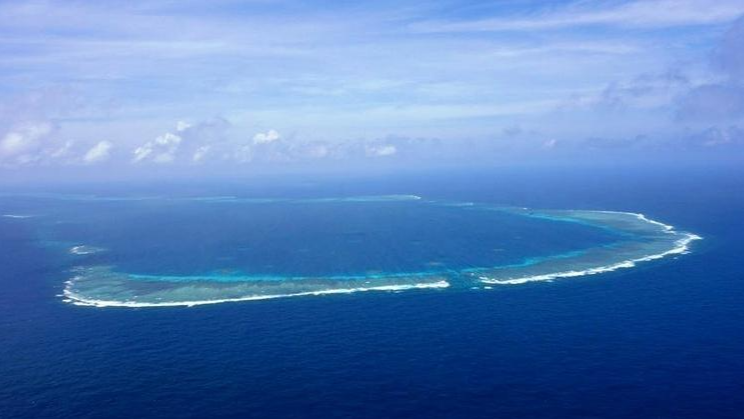
China and the Philippines have reopened talks to ease tensions over the South China Sea, with analysts viewing their agreement to strengthen a bilateral maritime communication mechanism as a “pivotal positive step” toward a peaceful settlement of the issue.
In a statement issued after the July 2 meeting of the Bilateral Consultation Mechanism on the South China Sea (BCM), the Philippine foreign affairs department said Foreign Affairs Undersecretary Ma. Theresa P. Lazaro and Chinese Vice-Foreign Minister Chen Xiaodong had frank and constructive discussions on the situation in the South China Sea.
China’s Ministry of Foreign Affairs said in a statement that the two sides believe that maintaining peace and stability in the South China Sea serves the common interests of China and the Philippines, and is also the shared goal of regional countries
Both sides signed the Arrangement on Improving Philippines-China Maritime Communication Mechanisms and agreed to discuss further how to operationalize this mechanism.
China’s Ministry of Foreign Affairs said in a statement that the two sides believe that maintaining peace and stability in the South China Sea serves the common interests of China and the Philippines, and is also the shared goal of regional countries.
ALSO READ: China and Philippines hold talks to defuse South China Sea tension
This is the 9th BCM for the two countries and builds on the outcomes of the 8th BCM which was held in Shanghai on Jan 17. They agreed to continue maintaining dialogue and consultation to manage contradictions and differences.
Oh Ei Sun, senior fellow with Singapore's Institute of International Affairs, said holding the latest bilateral meeting underscored the need for dialogue and negotiations to peacefully resolve differences in the disputed waterway.
“What we usually see is that both sides are vigorously defending their respective claims, sovereignty. But behind the scenes, there are negotiations to resolve the tension,” Oh said. He added that strengthening communication channels will help tone down “this high sea tension”.
Lucio Blanco Pitlo III, a research fellow at the Asia-Pacific Pathways to Progress Foundation, a Manila-based think tank, hoped that the dialogue can “arrest the downward spiral in testy waters and break the momentum of increasing untoward sea incidents”.
Wilson Lee Flores, honorary chairman of the Anvil Business Club in Manila, said the Philippines and China are both committed to “high-level diplomacy to address territorial tensions”, noting this approach reflects the Asian tradition of resolving disagreements through dialogue and mutual respect. He said the signing of the Arrangement on Improving Philippines-China Maritime Communication Mechanisms is “a pivotal positive step” toward peaceful dispute settlement.
For Anna Rosario Malindog-Uy, vice-president for external affairs of the Asian Century Philippines Strategic Studies Institute, both countries' participation in the 9th BCM meetings is “crucial” in preventing further misunderstandings and mistrust between the two sides.
She said diplomacy is the “best way forward”, adding that strengthening bilateral relations through mechanisms like BCM can manage conflicts, promote mutual interests and regional stability.
“By continuing to engage in constructive and peaceful dialogue and negotiations, the Philippines and China can work toward a future where cooperation and mutual respect prevail, benefiting their citizens, the ASEAN region, and the broader Asia-Pacific,” Malindog-Uy said.
Prior to the holding of the 9th BCM, Philippine President Ferdinand Marcos Jr said that the Southeast Asian country is “not in the business to instigate wars”.
“We refuse to play by the rules that force us to choose sides in a great power competition. No government that truly exists in the service of the people will invite danger or harm to lives and livelihood. And that is why, in defending the nation, we stay true to our Filipino nature that we would like to settle all these issues peacefully,” Marcos said in a speech to Philippine troops on June 23.
ALSO READ: China Coast Guard monitors, controls illegal Philippine activity
Philippine Foreign Affairs Secretary Enrique Manalo said in a June 25 Senate hearing that the country will pursue the peaceful resolution of disputes in accordance with international laws such as the United Nations Convention on the Law of the Sea, and his department has been “working hard to bring back China to the table to talk with us to resolve differences on these issues”, local media reported.
According to China’s Ministry of Foreign Affairs, the two sides exchanged views on the situation in the South China Sea, particularly the management of the situation at Ren’ai Jiao reef during the 9th BCM. China reiterated its sovereignty over the Nansha Islands, including Ren'ai Jiao reef, and its relevant maritime rights and jurisdiction in the surrounding waters.
The ministry also urged the Philippines to immediately stop its provocative actions at sea, earnestly abide by the provisions of the Declaration on the Conduct of Parties in the South China Sea, and return to the track of addressing differences through dialogue and consultation.
Philippine Undersecretary Lazaro said in a statement that Manila will be relentless in protecting its interests and upholding its sovereignty, sovereign rights, and jurisdiction in the South China Sea.
The two sides agreed to continue discussions on maritime cooperation between their respective coast guard authorities, including the possible resumption of the Joint Coast Guard Committee (JCGC).
Lee-Flores of Anvil Business Club said the potential resumption of JCGC is a “constructive move” toward better mutual understanding and collaboration.
“I also encourage both governments to promote cooperative fishing practices among their fisherfolks. The ocean, which has historically been a realm for trade and the building of friendships for centuries, is vast enough to sustain and benefit both nations harmoniously,” he said.
Mike Gu in Hong Kong contributed to this report.


